
This is a threaded version of Chapter 14:
“The Twelfth Descent—Accumulation:”
of *Prodigal Human: The Descents of Man*
by Michael Adzema.
READ CH THREAD or CLICK a link for free BOOK...
READ BOOK… sillymickel.blogspot.com/2022/02/prodig… #psychology #greed #devolution #possession
PH 14/1

“The Twelfth Descent—Accumulation:”
of *Prodigal Human: The Descents of Man*
by Michael Adzema.
READ CH THREAD or CLICK a link for free BOOK...
READ BOOK… sillymickel.blogspot.com/2022/02/prodig… #psychology #greed #devolution #possession
PH 14/1


Chapter 14 is subtitled,
“The “Domestication” of Humans—
“The Ability to Store Things Changes Everything for Prehistoric Humans...But Not in the Way We Thought It Did—
“Eden Stormed...The Rich Begin Calling the Tune”
THREAD wp.me/pwMlb-3in #psychology #greed
PH 14/2
“The “Domestication” of Humans—
“The Ability to Store Things Changes Everything for Prehistoric Humans...But Not in the Way We Thought It Did—
“Eden Stormed...The Rich Begin Calling the Tune”
THREAD wp.me/pwMlb-3in #psychology #greed
PH 14/2

[*Quotes/highlights:*] “This tragic, life-diminishing spinoff of our ability to gather & accumulate excessive ‘things’ was a desire to control even those of our own species: Our fellow humans became the last targets of our mania for control.” []
drive.google.com/file/d/1-dlEBH…
PH 14/3
drive.google.com/file/d/1-dlEBH…
PH 14/3
[Chapter 14 text begins:] “*The Creation of Greed*
“Beginning approximately 10,000 years ago—earlier in some places, later in others & in some rare & fortunate places not happening even up till modern times—the rich began calling the tune.”
… sillymickel.blogspot.com/2022/02/prodig…
PH 14/4



“Beginning approximately 10,000 years ago—earlier in some places, later in others & in some rare & fortunate places not happening even up till modern times—the rich began calling the tune.”
… sillymickel.blogspot.com/2022/02/prodig…
PH 14/4



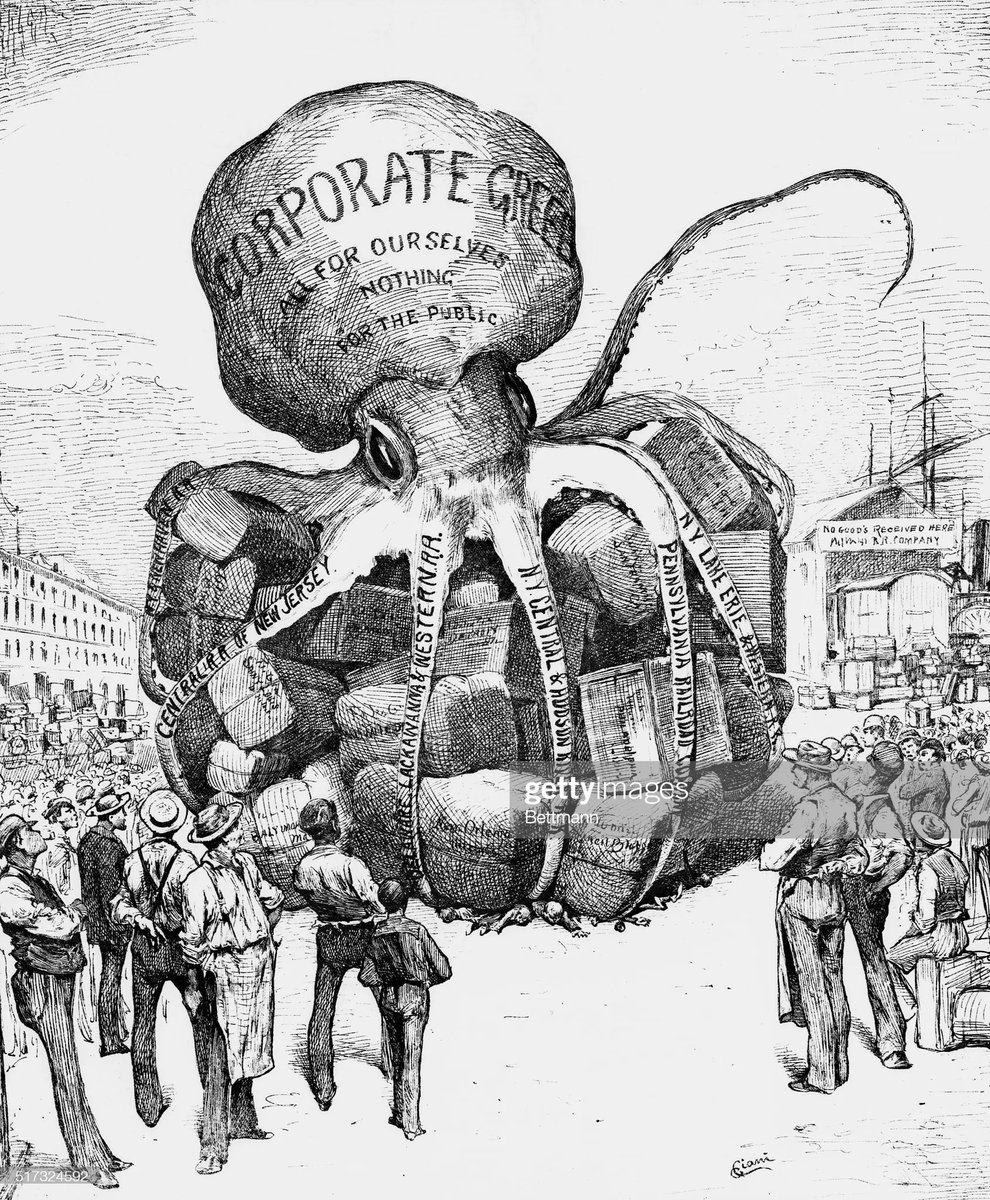
“This chapter lays out the beginnings of oppression & greed, which have taken on a heady importance in the 21st Cent as a small cadre of very, very well-to-do are engaged in consolidating the entire wealth of the world under thr orchestrations.”
wp.me/pwMlb-3in
PH 14/5
wp.me/pwMlb-3in
PH 14/5
“It is nothing less than astonishing to see the outlines of current events in the patterns of social & economic interaction that began in prehistory, after the adoption of farming & the end of the nomadic lifestyle.”
READ/DWL BOOK… drive.google.com/file/d/1-dlEBH… #psychology
PH 14/6
READ/DWL BOOK… drive.google.com/file/d/1-dlEBH… #psychology
PH 14/6
“Witness, for example the worldwide Occupy events calling for economic justice, beginning in 2011, & the phenomenal outpouring of support for Bernie Sanders, a socialist, in America in 2016, calling for the same & much more.”
THREAD… sillymickel.blogspot.com/2022/02/prodig… #psychology
PH 14/7

THREAD… sillymickel.blogspot.com/2022/02/prodig… #psychology
PH 14/7


“In truth, the roots of what we see in the daily newspapers—as well as what we observe in political developments in the capitals of nations, in mass movements & demonstrations of people on the streets of the major cities of the world,..”
THREAD… wp.me/pwMlb-3in
PH 14/8
THREAD… wp.me/pwMlb-3in
PH 14/8
“…& in the financial reports on television—extend deep into our history of the long long ago when sedentary ways led to the ability to gather & accumulate more, since owning more did not require carrying more.”
READ/DWL BOOK… drive.google.com/file/d/1-dlEBH… #psychology #greed
PH 14/9
READ/DWL BOOK… drive.google.com/file/d/1-dlEBH… #psychology #greed
PH 14/9
“*Accumulating Things*
“Our adoption of a non-nomadic lifestyle had—in addition to the nefarious effects from our breaking with Divine Providence—other pernicious consequences.”
THREAD… sillymickel.blogspot.com/2022/02/prodig… #psychology #greed #devolution #possession #anthropology
PH 14/10

“Our adoption of a non-nomadic lifestyle had—in addition to the nefarious effects from our breaking with Divine Providence—other pernicious consequences.”
THREAD… sillymickel.blogspot.com/2022/02/prodig… #psychology #greed #devolution #possession #anthropology
PH 14/10


“When we became sedentary—staying in one place & growing our food, eventually corralling other planet-mates, & so on—we were able, for the first time in our long evolutionary history, to accumulate.”
THREAD… wp.me/pwMlb-3in #psychology #greed #devo #possession
PH 14/11
THREAD… wp.me/pwMlb-3in #psychology #greed #devo #possession
PH 14/11

“So, the other dire consequence of our adoption of sedentary, non-nomadic life ways was the ability to gather & store more “things”—not just food but all kinds of “things”—for we did not have to carry what we owned, like a nomad would.”
THREAD… drive.google.com/file/d/1-dlEBH…
PH 14/12
THREAD… drive.google.com/file/d/1-dlEBH…
PH 14/12
“When we ceased wandering & set up more permanent abodes, we enabled the gathering & storage of much more than we could possibly need. However, storage of owned things created something relatively new—greed...an “unplanetmate-like” greed.”
-->… sillymickel.blogspot.com/2022/02/prodig…
PH 14/13

-->… sillymickel.blogspot.com/2022/02/prodig…
PH 14/13


“*The Invention of Possession*
“Let’s back up. Accumulation was intertwined with a whole new kind of addictive feeling for us, which is a concomitant of our controlling mania—a sense of ownership.”
THREAD… wp.me/pwMlb-3in #psychology #greed #devo #possession
PH 14/14
“Let’s back up. Accumulation was intertwined with a whole new kind of addictive feeling for us, which is a concomitant of our controlling mania—a sense of ownership.”
THREAD… wp.me/pwMlb-3in #psychology #greed #devo #possession
PH 14/14
“For the first time, we were really & truly able to *possess*...to *own*.
“Keep in mind that humans in Nature had no need, let alone desire, to *own* anything.”
READ/DWL BOOK… drive.google.com/file/d/1-dlEBH… #psychology #greed #devo #possession #anthro #evolution #ownership
PH 14/15
“Keep in mind that humans in Nature had no need, let alone desire, to *own* anything.”
READ/DWL BOOK… drive.google.com/file/d/1-dlEBH… #psychology #greed #devo #possession #anthro #evolution #ownership
PH 14/15
“Our environments—forest & seashore, field & streamside—were to us like vast kindly libraries from which one could borrow endlessly & return for more. Our natural surroundings were like storehouses or warehouses—repositories of all one’s needs.”
sillymickel.blogspot.com/2022/02/prodig…
PH 14/16

sillymickel.blogspot.com/2022/02/prodig…
PH 14/16

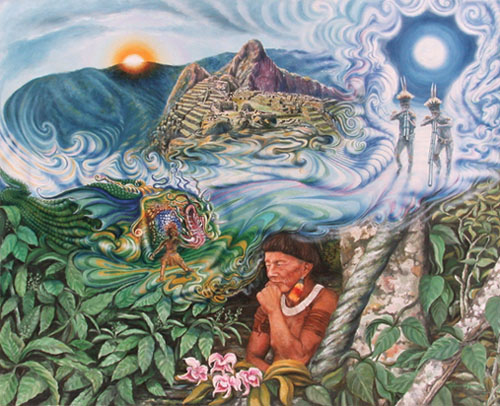
“One could attain, with little effort, all one needed & often most of what one wished, if not immediately, then eventually. & as easily as it was attained, it was discarded.”
THREAD… wp.me/pwMlb-3in #psychology #greed #devolution #possession #anthro #evolution
PH 14/17
THREAD… wp.me/pwMlb-3in #psychology #greed #devolution #possession #anthro #evolution
PH 14/17
“All things obtained were got from the All & returned to the All; they felt not owned, but more like borrowed. There was an unlimited supply of everything...not in every moment, of course.”
READ/DW BOOK drive.google.com/file/d/1-dlEBH… #psychology #greed #devolution #possession
PH 14/18
READ/DW BOOK drive.google.com/file/d/1-dlEBH… #psychology #greed #devolution #possession
PH 14/18
“But given time, or potentially, it would sooner or later be provided by Nature. All that was required was that one get it, that one accept the gift. It did not have to be “worked” for, planned for, traded for, saved up for...”
THREAD… sillymickel.blogspot.com/2022/02/prodig… #anthro
PH 14/19

THREAD… sillymickel.blogspot.com/2022/02/prodig… #anthro
PH 14/19


“…or mortgaged for...or indebted, sometimes for life, for...or begged for from intimidating bankers & financial institutions with tendencies to impose ritual processes involving humiliation prior to complying.”
READ BOOK… wp.me/pwMlb-3in #psychology #greed
PH 14/20
READ BOOK… wp.me/pwMlb-3in #psychology #greed
PH 14/20
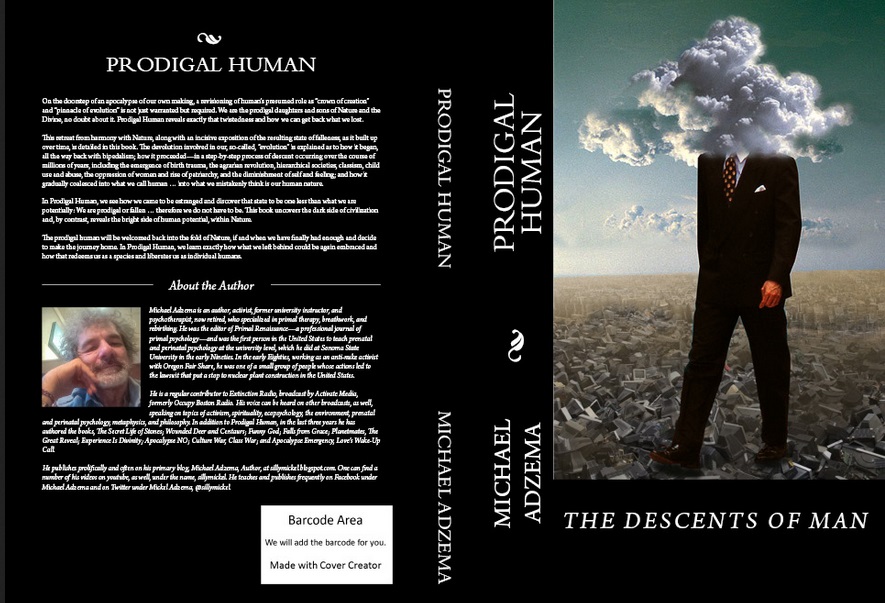
“By contrast, in Nature, all needs were felt to be satisfied in the normal “play” of life. & they were acquired through means that left one feeling pride in one’s abilities & a sense of belonging in the world;”
READ/DWL BOOK… drive.google.com/file/d/1-dlEBH… #psychology #greed
PH 14/21
READ/DWL BOOK… drive.google.com/file/d/1-dlEBH… #psychology #greed
PH 14/21
“unlike today where one ends up feeling diminished, stressed, alienated & small in relation to the world, worn down, and/or humiliated.
“Further, beyond just food there was no end of any other resource.”
THREAD… sillymickel.blogspot.com/2022/02/prodig… #psychology #greed #devolution
PH 14/22

“Further, beyond just food there was no end of any other resource.”
THREAD… sillymickel.blogspot.com/2022/02/prodig… #psychology #greed #devolution
PH 14/22

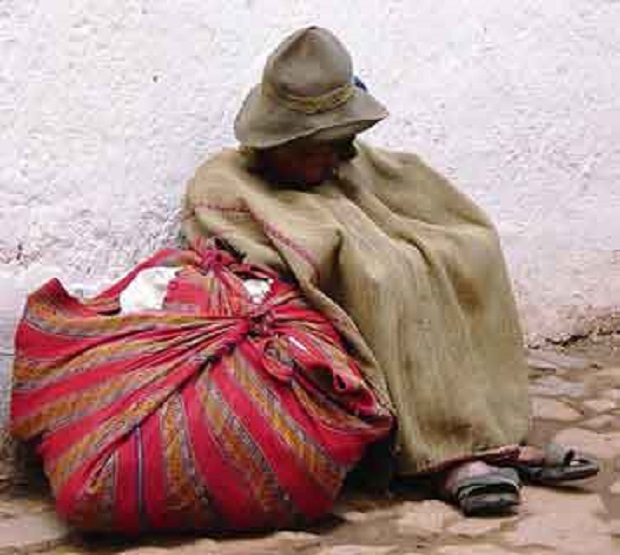
“Tools were fashioned, used, then discarded. They could always be made again. Indeed, why go through the work of carrying them from camp to camp if new ones could be easily made with much less effort than all the carrying would involve?”
THREAD wp.me/pwMlb-3in
PH 14/23
THREAD wp.me/pwMlb-3in
PH 14/23
“The same was true of shelters. Easily wrought from the surrounding offerings of Nature, they were readily left behind when time to move on.”
READ/DWL BOOK… drive.google.com/file/d/1-dlEBH… #psychology #greed #devolution #possession #anthro #evolution #ownership #anthropology
PH 14/24
READ/DWL BOOK… drive.google.com/file/d/1-dlEBH… #psychology #greed #devolution #possession #anthro #evolution #ownership #anthropology
PH 14/24
“As well, being able to do these things brought with it a sense of competence & surety in one’s abilities to function in the world,..”
READ BOOK… sillymickel.blogspot.com/2022/02/prodig… #psychology #greed #devolution #possession #anthro #evolution #ownership #anthropology #property
PH 14/25

READ BOOK… sillymickel.blogspot.com/2022/02/prodig… #psychology #greed #devolution #possession #anthro #evolution #ownership #anthropology #property
PH 14/25


“…providing a foundation of self-confidence on which to build the rest of one’s life & from which to come in pursuing the more important or higher possibilities of living.”
THREAD… wp.me/pwMlb-3in #psychology #greed #devolution #possession #anthro #evolution
PH 14/26
THREAD… wp.me/pwMlb-3in #psychology #greed #devolution #possession #anthro #evolution
PH 14/26
“This feeling of ease of attainment of anything desired affected our relationship to all aspects of our lives...to all aspects of our environment...& to each other.”
READ/DWL BOOK drive.google.com/file/d/1-dlEBH… #psychology #greed #devolution #possession #evolution #ownership
PH 14/27
READ/DWL BOOK drive.google.com/file/d/1-dlEBH… #psychology #greed #devolution #possession #evolution #ownership
PH 14/27
“By contrast, I have described in detail how our fear-and-controlling mania led us eventually to seek control of flora & fauna planetmates.”
READ &/or dwnl entire BOOK free AT SITE... sillymickel.blogspot.com/2022/02/prodig… #psychology #greed #devolution #possession #anthro #evolution
PH 14/28

READ &/or dwnl entire BOOK free AT SITE... sillymickel.blogspot.com/2022/02/prodig… #psychology #greed #devolution #possession #anthro #evolution
PH 14/28
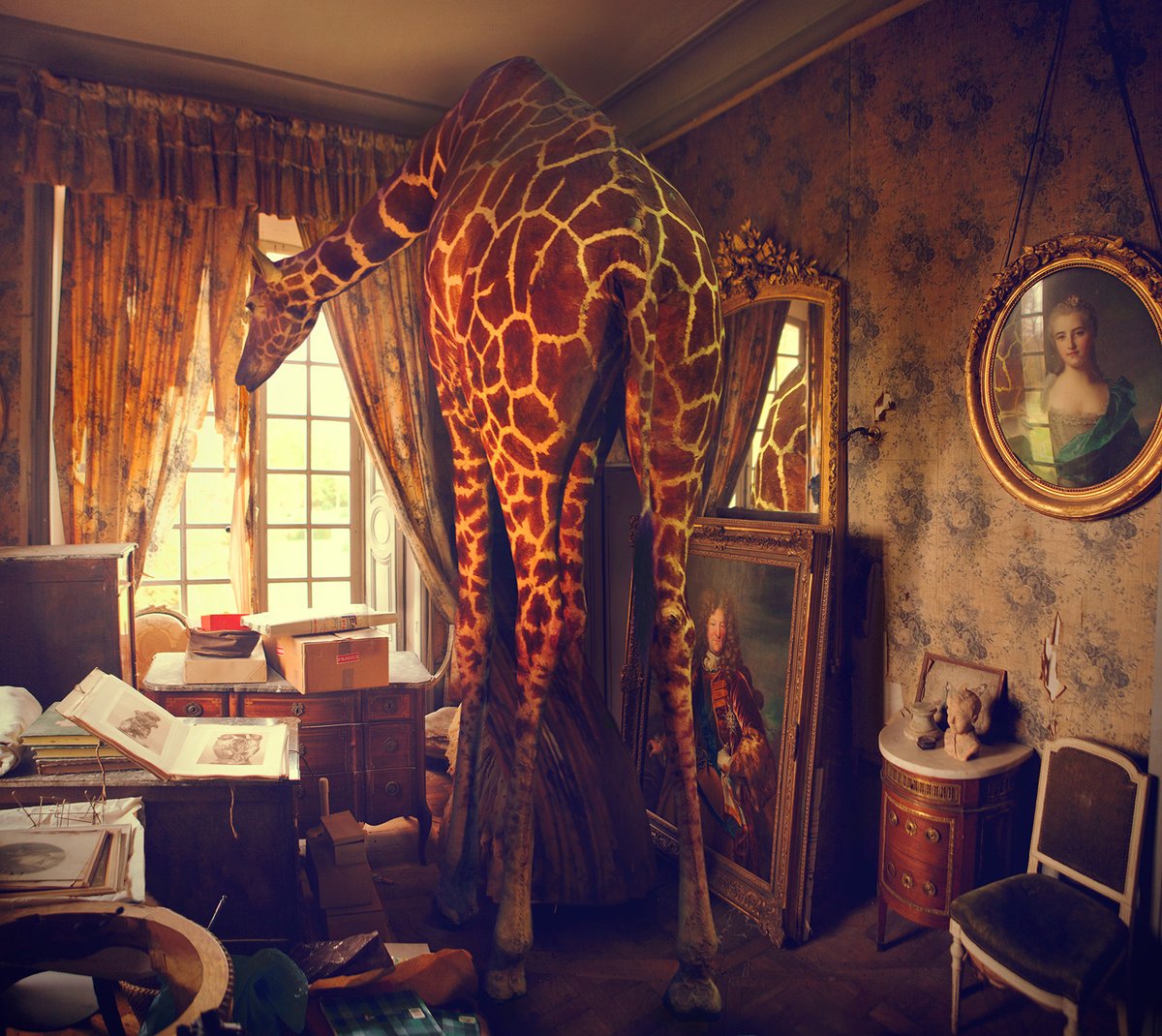

“Keep in mind that controlling is best attained by ownership. In order to control something, one had best have power over it.”
READ BOOK… wp.me/pwMlb-3in #psychology #greed #devolution #possession #anthro #evolution #ownership #anthropology #property #culture
PH 14/29
READ BOOK… wp.me/pwMlb-3in #psychology #greed #devolution #possession #anthro #evolution #ownership #anthropology #property #culture
PH 14/29

“& this curious idea of ownership & possession were the elements involved in having supreme power over something—giving one the ability, which later became a “right,” to use & abuse at one’s whim.”
READ/DWL BOOK… drive.google.com/file/d/1-dlEBH… #psychology #greed #devolution
PH 14/30
READ/DWL BOOK… drive.google.com/file/d/1-dlEBH… #psychology #greed #devolution
PH 14/30
“Essentially, in our behaviors of ownership—power over, possession—we took an element of life that all planetmates engage in to only a small extent & blew it up & stretched it out, umbrella-like, to cover all aspects of our experience of life.”
sillymickel.blogspot.com/2022/02/prodig…
PH 14/31
sillymickel.blogspot.com/2022/02/prodig…
PH 14/31
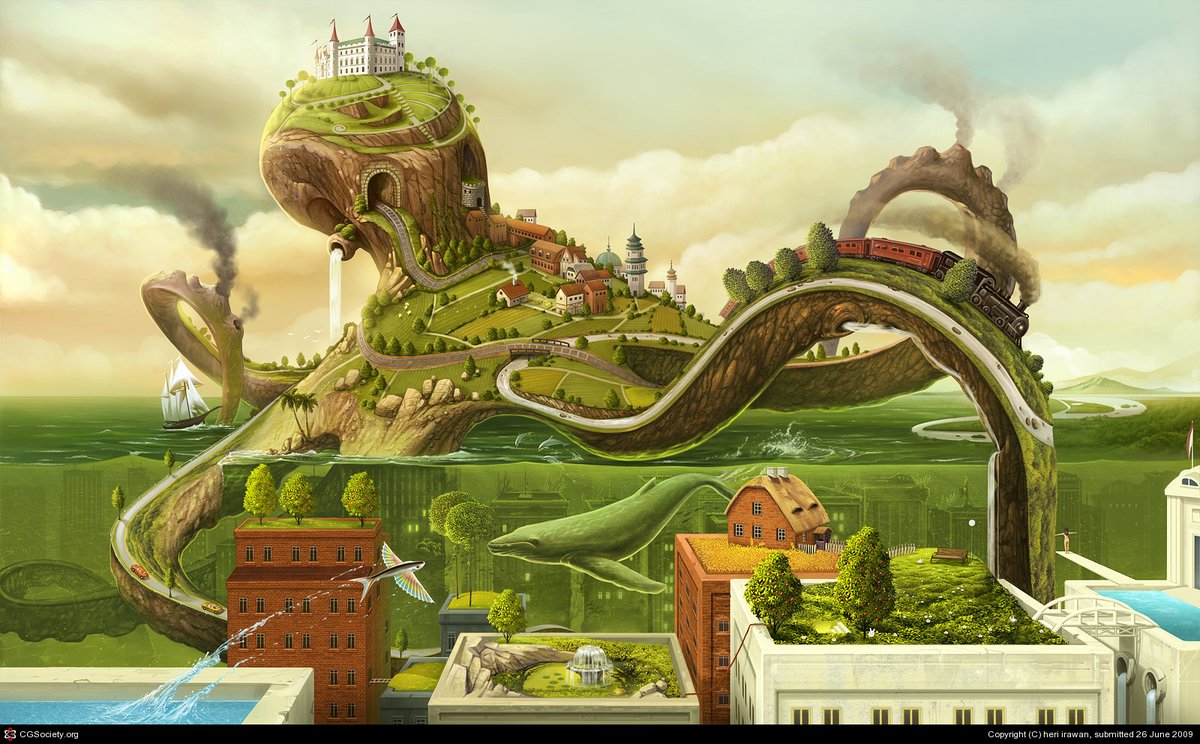
“Let me explain. First, all planetmates have a semblance of ownership: Flora “possess” the nutrients & water they take in from the soil...they “own” them. Fauna planetmates “own” the vegetation they eat, at the very moment of consuming it.”
->… wp.me/pwMlb-3in
PH 14/32
->… wp.me/pwMlb-3in
PH 14/32
“The prey that the carnivore planetmates devour are “owned” at the minute they are caught. But keep in mind that, once acquired, these items spend little time in such a state of possession b4 they are consumed & that what remains is discarded.”
drive.google.com/file/d/1-dlEBH…
PH 14/33
drive.google.com/file/d/1-dlEBH…
PH 14/33
“There is freedom therein; the time of owning is surrounded by the greater majority of time when one is completely unburdened.”
READ &/or dwnld entire BOOK free AT SITE... sillymickel.blogspot.com/2022/02/prodig… #psychology #greed #devolution #possession #anthro #evolution #ownership
PH 14/34

READ &/or dwnld entire BOOK free AT SITE... sillymickel.blogspot.com/2022/02/prodig… #psychology #greed #devolution #possession #anthro #evolution #ownership
PH 14/34


“Similarly, what one has taken in is returned to Nature in an altered form, after bodies have removed the part to be used for fuel. So, this engagement with the environment is more like borrowing than actually possessing or owning.”
READ BOOK… wp.me/pwMlb-3in
PH 14/35
READ BOOK… wp.me/pwMlb-3in
PH 14/35

“The biological rhythm, the pulse of life—rooted in our very respiration, our inhaling & exhaling—is all about this taking in & then giving out. There is a balance between the individual & the Other (the outside).”
READ/DWL BOOK… drive.google.com/file/d/1-dlEBH… #psyche #greed
PH 14/36
READ/DWL BOOK… drive.google.com/file/d/1-dlEBH… #psyche #greed
PH 14/36
“One is not depleted at the expense of the other. One is not dominant over or more important than the other. Receiving, giving...birth, death...consuming, defecating...loving, being loved...acting, resting...”
READ BOOK> sillymickel.blogspot.com/2022/02/prodig… #psychology #greed #devo
PH 14/37

READ BOOK> sillymickel.blogspot.com/2022/02/prodig… #psychology #greed #devo
PH 14/37

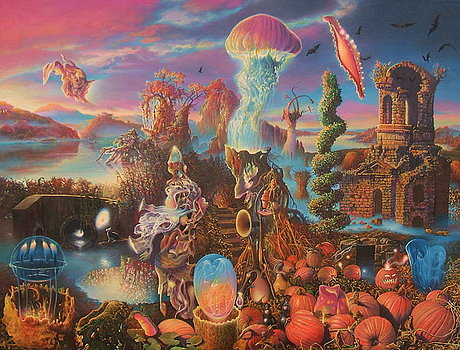
“…breathing in, breathing out...ebbing, flowing...waxing, waning...day, night...they are all aspects of the eternal cycle of things that encompasses all Reality.”
THREAD… wp.me/pwMlb-3in #psychology #greed #devolution #possession #anthro #evolution #ownership
PH 14/38
THREAD… wp.me/pwMlb-3in #psychology #greed #devolution #possession #anthro #evolution #ownership
PH 14/38
“This lack of ownership of anything & mere borrowing within the rhythms of greater wholes is true of all planetmates, with a few rare exceptions. & in no instance does any planetmate seek the possession or ownership of anything for long.”
THREAD drive.google.com/file/d/1-dlEBH…
PH 14/39
THREAD drive.google.com/file/d/1-dlEBH…
PH 14/39
“Even property. For while many planetmates will seek to have control of a specific territory, & will even mark it & defend it, that is no different from us in our early gathering lives having domains of influence for each different group of us.”
sillymickel.blogspot.com/2022/02/prodig…
PH 14/40

sillymickel.blogspot.com/2022/02/prodig…
PH 14/40

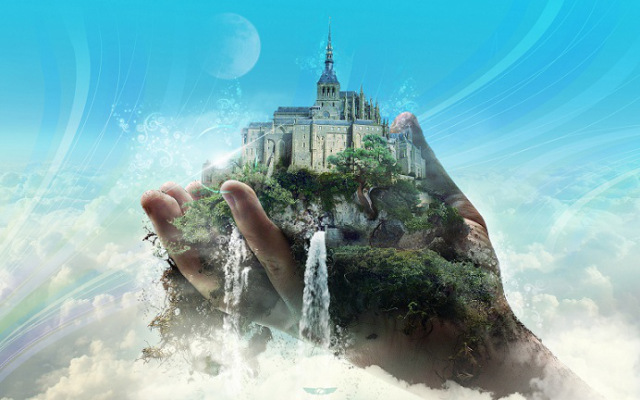
“But these domains were not possessed or owned; no permanent attachment to them was achieved or, even, wanted.”
READ &/or dwnld entire BOOK free AT SITE... wp.me/pwMlb-3in #psychology #greed #devolution #possession #anthro #evolution #ownership #anthropology
PH 14/41
READ &/or dwnld entire BOOK free AT SITE... wp.me/pwMlb-3in #psychology #greed #devolution #possession #anthro #evolution #ownership #anthropology
PH 14/41

“For, to possess involves responsibility in maintaining & defending the thing possessed. It is a *burden* to own; not just in that one will have to bear or carry it, but also that one will have to bear responsibility for it.”
READ/DWL BOOK drive.google.com/file/d/1-dlEBH… #devo
PH 14/42
READ/DWL BOOK drive.google.com/file/d/1-dlEBH… #devo
PH 14/42
“Whereas, none of our foraging forebears wanted to enslave themselves to any possessions of land. For such ownership cud only happen at the cost of forgoing the enjoyment & experience of ever more new & varied lands,“down the road,”so to speak.”
sillymickel.blogspot.com/2022/02/prodig…
PH 14/43

sillymickel.blogspot.com/2022/02/prodig…
PH 14/43

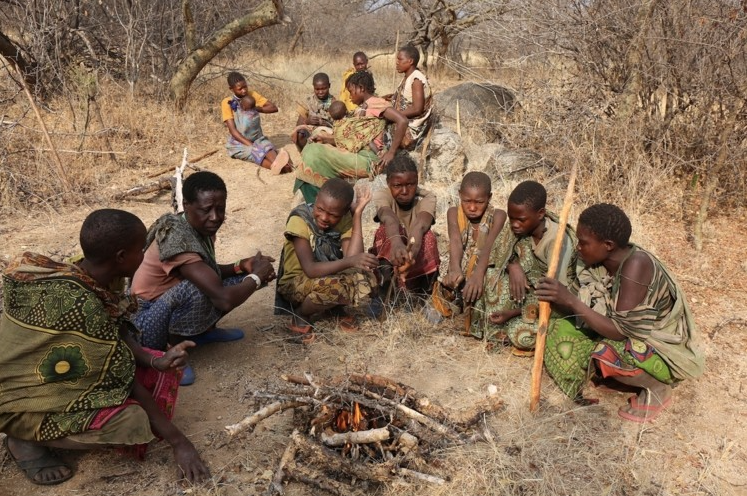
“Correspondingly, while there is occasional conflict among planetmates over territories, as there was for our foraging bands of forebears, these conflicts are & were easily resolved & easily walked away from.”
READ BOOK> wp.me/pwMlb-3in #psychology #greed #devo
PH 14/44
READ BOOK> wp.me/pwMlb-3in #psychology #greed #devo
PH 14/44
“For with endless supplies of everything, including land, the costs of losing life or incurring injury over defense of anything are simply not worth the prize.”
READ/DWL BOOK… drive.google.com/file/d/1-dlEBH… #psyche #greed #devolution #possession #anthro #evolution #ownership
PH 14/45
READ/DWL BOOK… drive.google.com/file/d/1-dlEBH… #psyche #greed #devolution #possession #anthro #evolution #ownership
PH 14/45
“Further, one is not “owned by” or “identified with” any particular possessions or ownership. Our early forebears essentially “owned everything” & yet “owned nothing.””
THREAD… sillymickel.blogspot.com/2022/02/prodig… #psychology #greed #devo #possession #anthro #evolution #ownership
PH 14/46


THREAD… sillymickel.blogspot.com/2022/02/prodig… #psychology #greed #devo #possession #anthro #evolution #ownership
PH 14/46
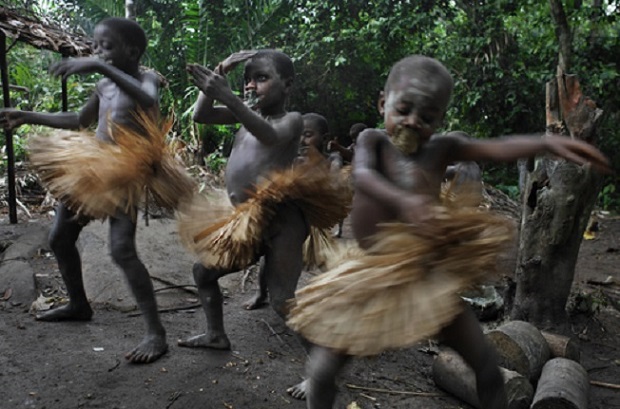


“Owning everything meant there was always more of whatever. & owning nothing meant that one’s ego or identity or status or stature was not involved in the possession or ownership of anything in particular.”
THREAD wp.me/pwMlb-3in #psychology #greed #devolution
PH 14/47
THREAD wp.me/pwMlb-3in #psychology #greed #devolution
PH 14/47

“Hence, in either case, one could move to avoid conflict and, having unlimited choice, simply make other choices in those instances where one’s desires bumped up against any other one’s.”
READ/DW BOOK… drive.google.com/file/d/1-dlEBH… #psychology #greed #devolution #possession
PH 14/48
READ/DW BOOK… drive.google.com/file/d/1-dlEBH… #psychology #greed #devolution #possession
PH 14/48
“*And the Worship of Things*
“However, by growing our food & possessing planetmates for our use in a fixed place with a permanent domicile, we were able to store food, but other kinds of “things” as well.”
THREAD sillymickel.blogspot.com/2022/02/prodig… #psychology #greed #devolution
PH 14/49

“However, by growing our food & possessing planetmates for our use in a fixed place with a permanent domicile, we were able to store food, but other kinds of “things” as well.”
THREAD sillymickel.blogspot.com/2022/02/prodig… #psychology #greed #devolution
PH 14/49


“This was bc when we were nomadic we, naturally, had to carry everything we wanted to “own”; whereas when we “nested” we not only did not have to carry possessions but we were able to create & build storage areas to protect our accumulations.”
wp.me/pwMlb-3in
PH 14/50
wp.me/pwMlb-3in
PH 14/50
“In this way we gathered & stored more than we could ever possibly need. The ability to possess more & store it led to the desire to possess exceedingly, for some of us.”
READ/DW BOOK drive.google.com/file/d/1-dlEBH… #psychology #greed #devolution #possession #anthro #evolution
PH 14/51
READ/DW BOOK drive.google.com/file/d/1-dlEBH… #psychology #greed #devolution #possession #anthro #evolution
PH 14/51
“There were reasons why humans would be pushed toward greed, this way, other than just that humans are that way by nature. For we are not, by nature, greedy, as I have been describing.
“Let us look more deeply into this.”
READ BOOK> sillymickel.blogspot.com/2022/02/prodig… #psychology
PH 14/52



“Let us look more deeply into this.”
READ BOOK> sillymickel.blogspot.com/2022/02/prodig… #psychology
PH 14/52




“With the beginnings of the concept of possession—of little importance prior to sedentary lifeways—Eden became owned, but more: With the focus on individual ownership, we began ourselves being enslaved by what we possessed.”
THREAD… wp.me/pwMlb-3in #psychology
PH 14/53
THREAD… wp.me/pwMlb-3in #psychology
PH 14/53

“With storing—the ability to gather & place things together, that were thus “possessed,” for use at a later time—we fully manifested the already burgeoning addiction we were having for things.”
READ/DW BOOK… drive.google.com/file/d/1-dlEBH… #psychology #greed #devo #possession
PH 14/54
READ/DW BOOK… drive.google.com/file/d/1-dlEBH… #psychology #greed #devo #possession
PH 14/54
“It is hard to see such an addiction, today, for it is the norm. However, in our devolution this obsession w possessions & this enslavement by the very things we owned was quite a contrast to the lives of full experience we once had..& enjoyed.”
sillymickel.blogspot.com/2022/02/prodig…
PH 14/55



sillymickel.blogspot.com/2022/02/prodig…
PH 14/55




“For with this dis-ease, we made objects the center of our existence; we lived our lives around them. Preservation of human life became secondary to the preservation of things.”
READ BOOK… wp.me/pwMlb-3in #psychology #greed #devo #possession #anthro #evolution
PH 14/56
READ BOOK… wp.me/pwMlb-3in #psychology #greed #devo #possession #anthro #evolution
PH 14/56
“Things became more important, far more important, than people—their lives or their feelings.”
“*The Requirement of Defense of Stores*
“But it did not end there.”
READ/DWL BOOK… drive.google.com/file/d/1-dlEBH… #psychology #greed #devolution #possession #anthro #evolution
PH 14/57
“*The Requirement of Defense of Stores*
“But it did not end there.”
READ/DWL BOOK… drive.google.com/file/d/1-dlEBH… #psychology #greed #devolution #possession #anthro #evolution
PH 14/57
“For once stored & built up, such “wealth” would attract others & so require defending in a manner much more determined than any previous defending of territories for foraging rights & the like, because these stores were not easily replaceable.”
sillymickel.blogspot.com/2022/02/prodig…
PH 14/58



sillymickel.blogspot.com/2022/02/prodig…
PH 14/58
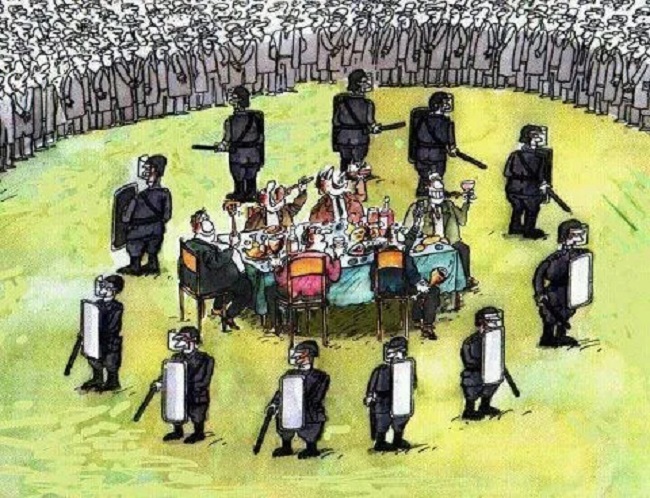



“They represented huge investments of time & resources to build them up, contain them, defend them. They could hardly be stumbled upon “down the road.””
THREAD… wp.me/pwMlb-3in #psyche #greed #devolution #possession #anthro #evolution #ownership #anthropology
PH 14/59
THREAD… wp.me/pwMlb-3in #psyche #greed #devolution #possession #anthro #evolution #ownership #anthropology
PH 14/59

“Besides, *sedentary* implies one does not have access to resources potentially all & everywhere but only in one’s immediate & “owned” vicinity. So there being no journey, there is no “down the road” for sedentary folks.”
READ/DWL BOOK… drive.google.com/file/d/1-dlEBH… #psyche
PH 14/60
READ/DWL BOOK… drive.google.com/file/d/1-dlEBH… #psyche
PH 14/60
“Think how that might have increased violence & aggression between humans. Sure enough, with sedentary living we begin having “security needs”—as it is said today.”
THREAD sillymickel.blogspot.com/2022/02/prodig… #psychology #greed #devolution #possession #anthro #evolution #ownership
PH 14/61


THREAD sillymickel.blogspot.com/2022/02/prodig… #psychology #greed #devolution #possession #anthro #evolution #ownership
PH 14/61



“Folks having much more of their time & efforts wrapped up in things & their ownership, they would be willing to fight & die for them, unlike before.”
THREAD wp.me/pwMlb-3in #psychology #greed #devolution #possession #anthro #evolution #ownership #anthropology
PH 14/62
THREAD wp.me/pwMlb-3in #psychology #greed #devolution #possession #anthro #evolution #ownership #anthropology
PH 14/62
“We see the roots of war & conquest here, with these simple beginnings in the ownership & defense of stores.
“And with storage, then accumulation, then defense, there fol¬lowed another development.”
READ/DW BOOK… drive.google.com/file/d/1-dlEBH… #psychology #greed #devolution
PH 14/63
“And with storage, then accumulation, then defense, there fol¬lowed another development.”
READ/DW BOOK… drive.google.com/file/d/1-dlEBH… #psychology #greed #devolution
PH 14/63
“These things led to another cancerous outgrowth in our increasing addiction to controlling our experiences as opposed to discovering the adventure Divinity would have for our development & furthering on the path back to unity with The All.”
sillymickel.blogspot.com/2022/02/prodig…
PH 14/64

sillymickel.blogspot.com/2022/02/prodig…
PH 14/64


“*Dominating Others*
“Remember, in Nature it was a burden to possess, both literally & figuratively. This applied to territories, to food...but, keep in mind, also to others of us.”
READ BOOK… wp.me/pwMlb-3in #psychology #greed #devolution #possession #anthro
PH 14/65
“Remember, in Nature it was a burden to possess, both literally & figuratively. This applied to territories, to food...but, keep in mind, also to others of us.”
READ BOOK… wp.me/pwMlb-3in #psychology #greed #devolution #possession #anthro
PH 14/65

“It was of no more use to seek to “own” or “possess” another person than it was to do the same for territory or anything else.”
READ &/or dwnld entire BOOK free AT SITE... drive.google.com/file/d/1-dlEBH… #psychology #greed #devolution #possession #anthro #evolution #ownership
PH 14/66
READ &/or dwnld entire BOOK free AT SITE... drive.google.com/file/d/1-dlEBH… #psychology #greed #devolution #possession #anthro #evolution #ownership
PH 14/66
“For it would bring with it an unwanted responsibility & limitation of life experience at the cost of a more precious freedom & the normal expanded possibilities of living.”
THREAD… sillymickel.blogspot.com/2022/02/prodig… #psychology #greed #devolution #possession #anthro #evolution
PH 14/67

THREAD… sillymickel.blogspot.com/2022/02/prodig… #psychology #greed #devolution #possession #anthro #evolution
PH 14/67

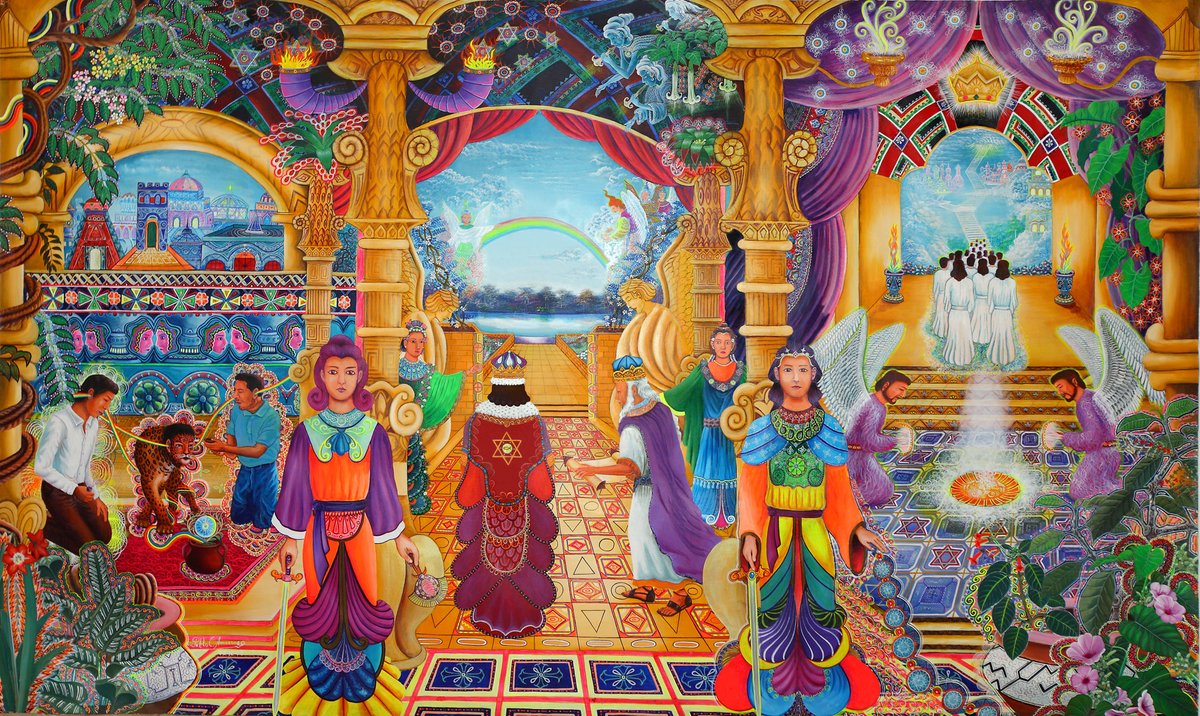
“It made no sense for early human men to dominate women, for example. Everyone having self-determination meant everyone had self-responsibility & took care of themselves, primarily.”
READ BOOK… wp.me/pwMlb-3in #psychology #greed #devolution #possession #anthro
PH 14/68
READ BOOK… wp.me/pwMlb-3in #psychology #greed #devolution #possession #anthro
PH 14/68
“Again, to own anyone or have power over anyone is a lot of extra work, taking away from the pleasurable experience of the variety of life lived unrestrainedly.”
READ/DWL BOOK… drive.google.com/file/d/1-dlEBH… #psychology #greed #devo #possession #anthro #evolution #ownership
PH 14/69
READ/DWL BOOK… drive.google.com/file/d/1-dlEBH… #psychology #greed #devo #possession #anthro #evolution #ownership
PH 14/69
“Possession, purely & simply, is hardly worth the effort in a world of limitless supply.
“However, with sedentary living all that changed. We became something different from anything we had ever known.”
READ BOOK> sillymickel.blogspot.com/2022/02/prodig… #psychology #greed #devolution
PH 14/70



“However, with sedentary living all that changed. We became something different from anything we had ever known.”
READ BOOK> sillymickel.blogspot.com/2022/02/prodig… #psychology #greed #devolution
PH 14/70

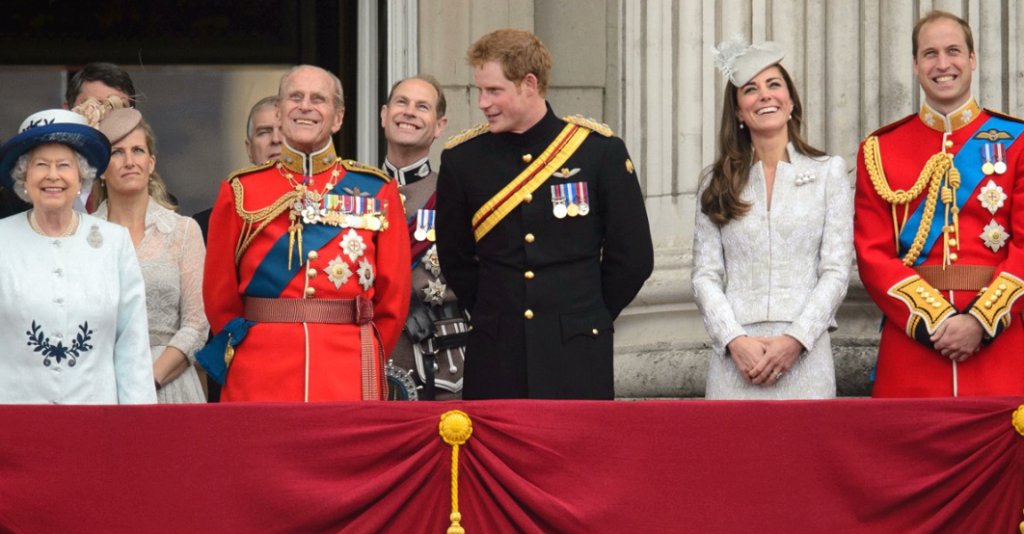
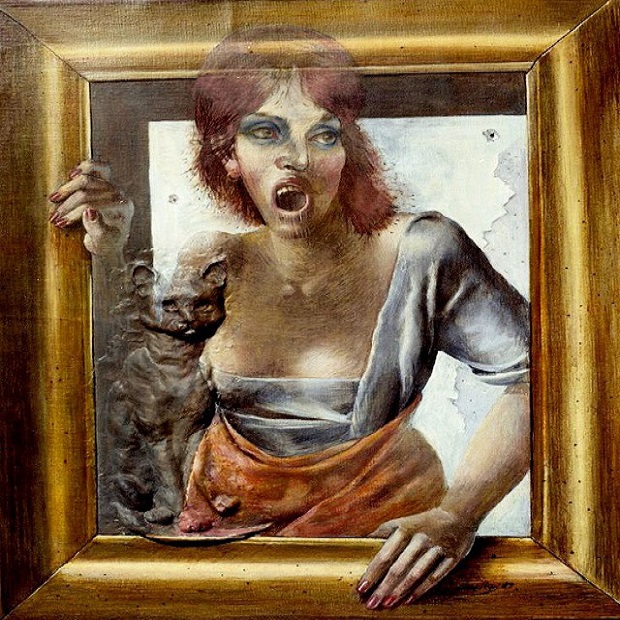

“*Controlling Others*
“This tragic, life-diminishing spinoff of our ability to gather & accumulate excessive “things” was a desire to control even those of our own species:”
THREAD… wp.me/pwMlb-3in #psychology #greed #devolution #possession #anthro #evolution
PH 14/71
“This tragic, life-diminishing spinoff of our ability to gather & accumulate excessive “things” was a desire to control even those of our own species:”
THREAD… wp.me/pwMlb-3in #psychology #greed #devolution #possession #anthro #evolution
PH 14/71

“Our fellow humans became the ultimate targets of our mania for control. It was added to our desires to control our experiences, the timing of events, our sustenance & food sources...”
READ/DWL BOOK… drive.google.com/file/d/1-dlEBH… #psychology #greed #devolution #possession
PH 14/72
READ/DWL BOOK… drive.google.com/file/d/1-dlEBH… #psychology #greed #devolution #possession
PH 14/72
“…which involved controlling our planetmates of the Flora & Fauna Kingdoms of Consciousness...our lifestyles, that is to say, becoming sedentary, & so on.”
THREAD… sillymickel.blogspot.com/2022/02/prodig… #psychology #greed #devolution #possession #evolution #ownership #anthropology
PH 14/73



THREAD… sillymickel.blogspot.com/2022/02/prodig… #psychology #greed #devolution #possession #evolution #ownership #anthropology
PH 14/73
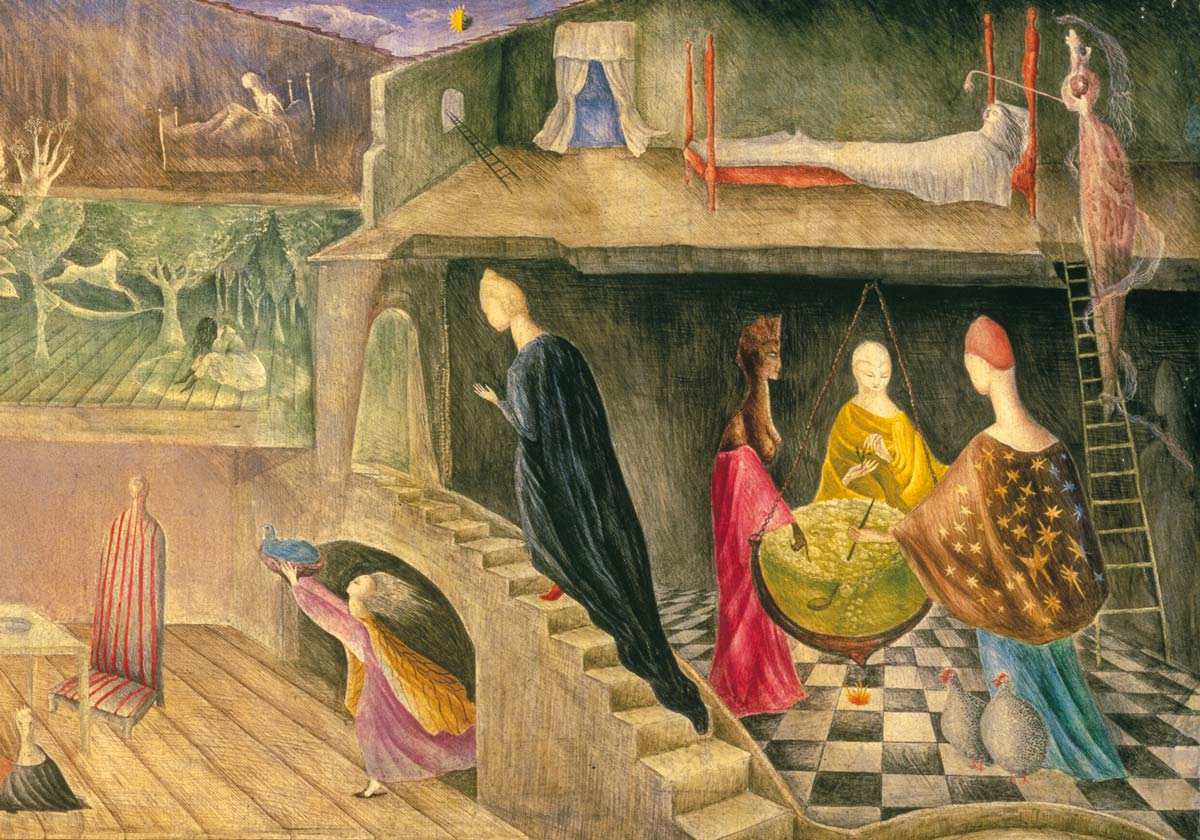
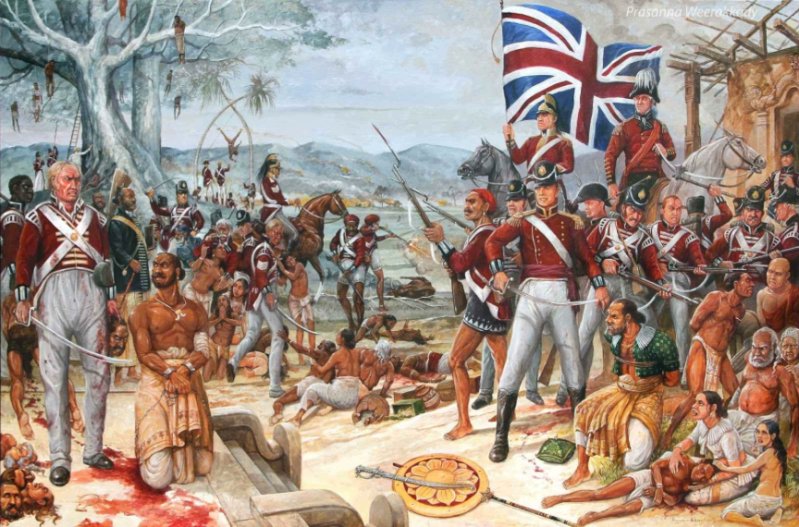


“*The Devitalization of All Other*
“Our Ego was consolidating its position as the ruler of all & the only real thing in existence.”
THREAD wp.me/pwMlb-3in #psychology #greed #devolution #possession #anthro #evolution #ownership #anthropology #property #culture
PH 14/74
“Our Ego was consolidating its position as the ruler of all & the only real thing in existence.”
THREAD wp.me/pwMlb-3in #psychology #greed #devolution #possession #anthro #evolution #ownership #anthropology #property #culture
PH 14/74
“We had removed the life essence from all of Reality, its soul; we saw it all as being inanimate & thus diminished, usable for any ends to satisfy the Ego.”
READ/DWL BOOK… drive.google.com/file/d/1-dlEBH… #psychology #greed #devolution #possession #anthro #evolution #ownership
PH 14/75
READ/DWL BOOK… drive.google.com/file/d/1-dlEBH… #psychology #greed #devolution #possession #anthro #evolution #ownership
PH 14/75
“At this point, we became heady with possessing things, seeing them as defenses against feelings of deprivation...again.”
READ &/or dwnld entire BOOK free AT SITE... sillymickel.blogspot.com/2022/02/prodig… #psychology #greed #devolution #possession #evolution #ownership #anthropology
PH 14/76



READ &/or dwnld entire BOOK free AT SITE... sillymickel.blogspot.com/2022/02/prodig… #psychology #greed #devolution #possession #evolution #ownership #anthropology
PH 14/76




“& fearfully focused on relief from feelings of want, our controlling mania sought the manipulation of ever more in our environment—now, even this, our fellow humans in our communities.”
THREAD wp.me/pwMlb-3in #psychology #greed #devolution #possession #anthro
PH 14/77
THREAD wp.me/pwMlb-3in #psychology #greed #devolution #possession #anthro
PH 14/77

“We needed to see them as less animate to do this, so we did. We built up, more & more, this idea that we were the reason for Existence & that even our human planetmates were mere props for our existence...to be used however we would wish.”
--> drive.google.com/file/d/1-dlEBH…
PH 14/78
--> drive.google.com/file/d/1-dlEBH…
PH 14/78
“The stage was set for the valuing of some lives over other lives, for the dramas of domination & submission, for the oppression of a subservient class by a dominating class,..”
READ BOOK… sillymickel.blogspot.com/2022/02/prodig… #psychology #greed #devo #possession #anthro #evolution
PH 14/79



READ BOOK… sillymickel.blogspot.com/2022/02/prodig… #psychology #greed #devo #possession #anthro #evolution
PH 14/79
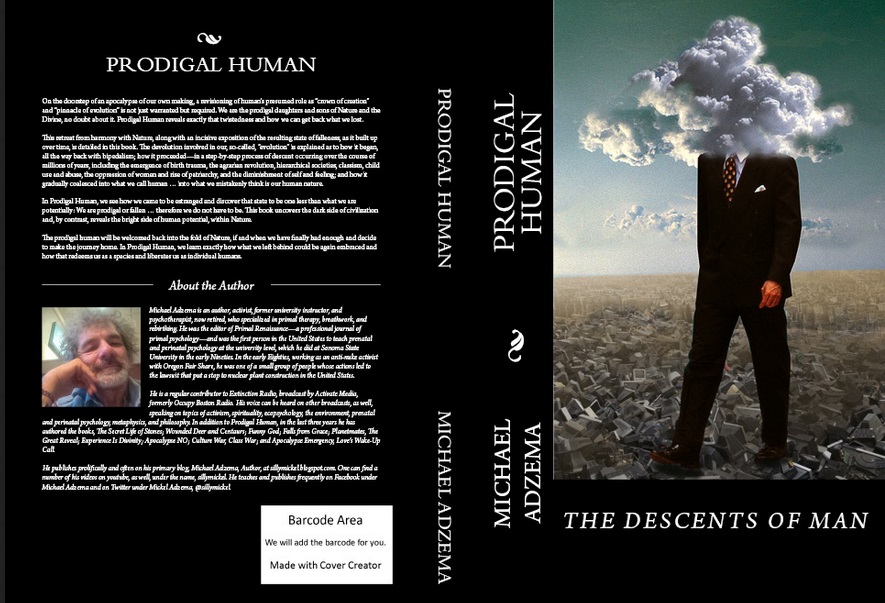



“…for the division of labor in a way that higher ups would decide what those lower in the ranks would do in ways both subtle & brutal, & thus for this new thing of hierarchy in human societies.”
THREAD wp.me/pwMlb-3in #psychology #greed #devolution #possession
PH 14/80
THREAD wp.me/pwMlb-3in #psychology #greed #devolution #possession
PH 14/80
“Remember that foraging-hunting nomadic groups were relatively egalitarian. With civilization, that ends; autocracy & royal rule become the norm. It is to that, this next, this thirteenth descent, hierarchy, to which we now turn.”
READ/DW BOOK… drive.google.com/file/d/1-dlEBH…
PH 14/81
READ/DW BOOK… drive.google.com/file/d/1-dlEBH…
PH 14/81
This has been a threaded version of Ch 14
“The Twelfth Descent—Accumulation:”
of *Prodigal Human: The Descents of Man*
by Michael Adzema
THREAD… sillymickel.blogspot.com/2022/02/prodig… #psychology #greed #devolution #possession #anthro #evolution #ownership #anthropology #property
PH 14/82



“The Twelfth Descent—Accumulation:”
of *Prodigal Human: The Descents of Man*
by Michael Adzema
THREAD… sillymickel.blogspot.com/2022/02/prodig… #psychology #greed #devolution #possession #anthro #evolution #ownership #anthropology #property
PH 14/82




Chapter 14 is subtitled,
“The “Domestication” of Humans—
“The Ability to Store Things Changes Everything for Prehistoric Humans...But Not in the Way We Thought It Did—
“Eden Stormed...The Rich Begin Calling the Tune”
THREAD wp.me/pwMlb-3in #psychology #greed
PH 14/83
“The “Domestication” of Humans—
“The Ability to Store Things Changes Everything for Prehistoric Humans...But Not in the Way We Thought It Did—
“Eden Stormed...The Rich Begin Calling the Tune”
THREAD wp.me/pwMlb-3in #psychology #greed
PH 14/83

*Prodigal Human: The Descents of Man* by Michael Adzema is a devolutional look at human’s splitting away from Nature in the creation of a human nature at war with the natural.
READ/DWL BOOK… drive.google.com/file/d/1-dlEBH… #psychology #greed #devolution #possession #anthro
PH 14/84
READ/DWL BOOK… drive.google.com/file/d/1-dlEBH… #psychology #greed #devolution #possession #anthro
PH 14/84
The book, *Prodigal Human*, shows how in our creation of civilization, we locked in a human status that has us either as Controllers, Conforming Underlings, or Authentics.
READ BOOK… sillymickel.blogspot.com/2022/02/prodig… #psychology #greed #devolution #possession #anthro #evolution
PH 14/85
READ BOOK… sillymickel.blogspot.com/2022/02/prodig… #psychology #greed #devolution #possession #anthro #evolution
PH 14/85

We see how that change from our primal, prehistoric profile, has led us to the kind of personality today of folks who are able to end life on this planet, with hardly a second thought.
THREAD… wp.me/pwMlb-3in #psychology #greed #devolution #possession #anthro
PH 14/86
THREAD… wp.me/pwMlb-3in #psychology #greed #devolution #possession #anthro
PH 14/86
In doing so, *Prodigal Human* presents a new devolutional theory in anthropology. The book also explains how our deeper human nature, cooperative with Nature, can be regained and our world saved from apocalypse.
READ/DW BOOK… drive.google.com/file/d/1-dlEBH… #psychology #greed
PH 14/87
READ/DW BOOK… drive.google.com/file/d/1-dlEBH… #psychology #greed
PH 14/87
This devolutional theory of evolution demonstrates how bipedalism & the resulting birth trauma led to descents of humans from an original natural state, leading to misogyny, class war, hunting, sedentary living, farming, religion, & more.
THREAD sillymickel.blogspot.com/2022/02/prodig…
PH 14/88



THREAD sillymickel.blogspot.com/2022/02/prodig…
PH 14/88




The complete book is available online at the links.
you can read the book, which is posted on the blog, or you can follow the directions there & download a free copy of *Prodigal Human: The Descents of Man*.
READ BOOK… wp.me/pwMlb-3in #psychology #greed #devo
PH 14/89
you can read the book, which is posted on the blog, or you can follow the directions there & download a free copy of *Prodigal Human: The Descents of Man*.
READ BOOK… wp.me/pwMlb-3in #psychology #greed #devo
PH 14/89
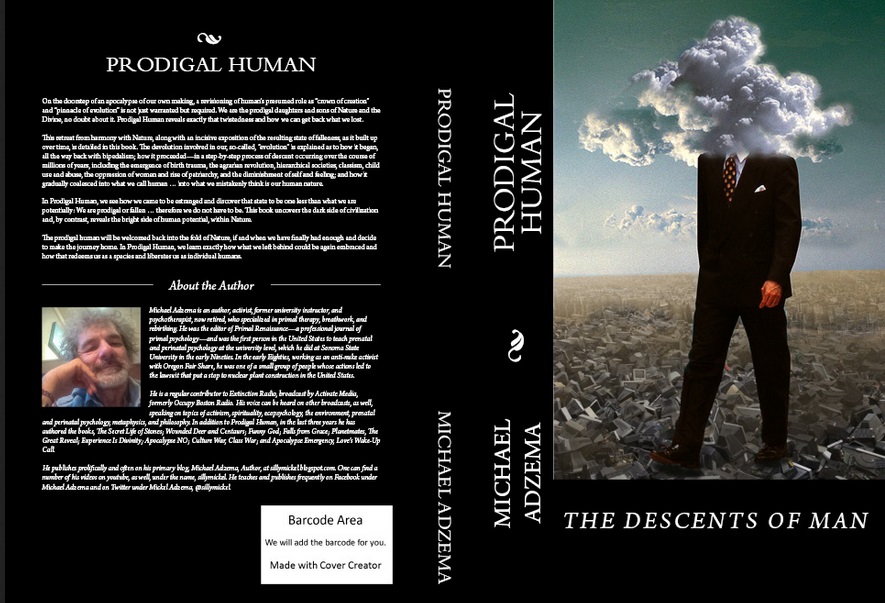
This is the completed document for *Prodigal Human: The Descents of Man*
It is a pdf file, & it looks exactly as the book looks.
To read &/or download a copy, click link:
drive.google.com/file/d/1-dlEBH… #psychology #greed #devolution #possession #anthro #evolution #ownership
PH 14/90
It is a pdf file, & it looks exactly as the book looks.
To read &/or download a copy, click link:
drive.google.com/file/d/1-dlEBH… #psychology #greed #devolution #possession #anthro #evolution #ownership
PH 14/90
Feel free to download the book, pass it around, use it to help get word out to save the planet to whoever or to whatever outlet you know.
Unless major actions by the world's governments happens fast, it is all over for life on planet Earth.
>… sillymickel.blogspot.com/2022/02/prodig…
PH 14/91

Unless major actions by the world's governments happens fast, it is all over for life on planet Earth.
>… sillymickel.blogspot.com/2022/02/prodig…
PH 14/91


& please send any comments/reviews of the book to me at
sillymickel@yahoo.com
The idea being I might be able to use your comments in describing it in my own sharing on social media.
READ BOOK> wp.me/pwMlb-3in #psychology #greed #devolution #possession #anthro
PH 14/92
sillymickel@yahoo.com
The idea being I might be able to use your comments in describing it in my own sharing on social media.
READ BOOK> wp.me/pwMlb-3in #psychology #greed #devolution #possession #anthro
PH 14/92
Finally, if what you prefer are paperback or ebook/Kindle versions, you may acquire them at the links below.
Paperback: amazon.com/Prodigal-Human…
&
#psychology #greed #devolution #anthro #evolution #ownership #anthropology #property #culture #domestication #patriarchy
PH 14/93
Paperback: amazon.com/Prodigal-Human…
&
#psychology #greed #devolution #anthro #evolution #ownership #anthropology #property #culture #domestication #patriarchy
PH 14/93
&
Ebook/Kindle: amazon.com/Prodigal-Human…
All my books are priced at cost or the minimum Amazon allows.
#psychology #greed #devolution #possession #anthro #evolution #ownership #anthropology #property #culture #domestication #patriarchy #ClassWar #accumulation #storage
PH 14/94
Ebook/Kindle: amazon.com/Prodigal-Human…
All my books are priced at cost or the minimum Amazon allows.
#psychology #greed #devolution #possession #anthro #evolution #ownership #anthropology #property #culture #domestication #patriarchy #ClassWar #accumulation #storage
PH 14/94
Up next,
in *Prodigal Human:
*The Descents of Man*
is Ch 15, titled,
“The Thirteenth Descent—Hierarchy:”
READ BOOK… sillymickel.blogspot.com/2022/02/prodig… #psychology #greed #devolution #possession #anthro #evolution #ownership #anthropology #property #culture #domestication
PH 14/95



in *Prodigal Human:
*The Descents of Man*
is Ch 15, titled,
“The Thirteenth Descent—Hierarchy:”
READ BOOK… sillymickel.blogspot.com/2022/02/prodig… #psychology #greed #devolution #possession #anthro #evolution #ownership #anthropology #property #culture #domestication
PH 14/95


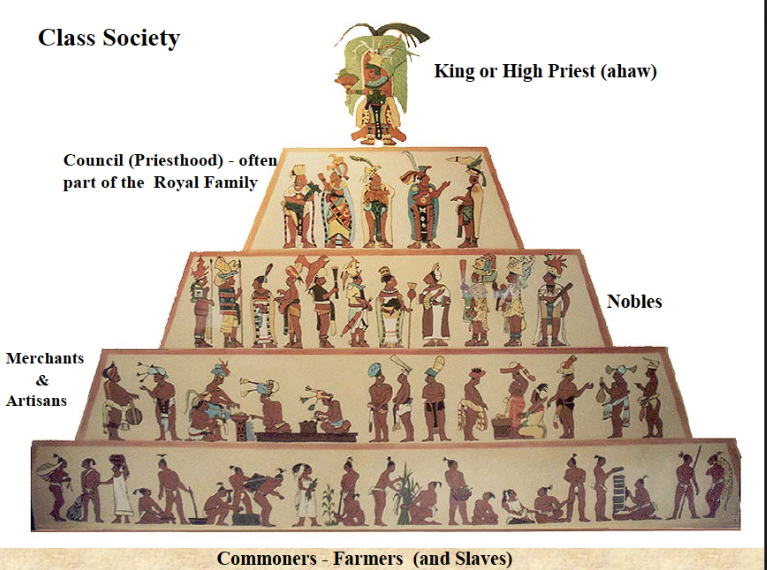
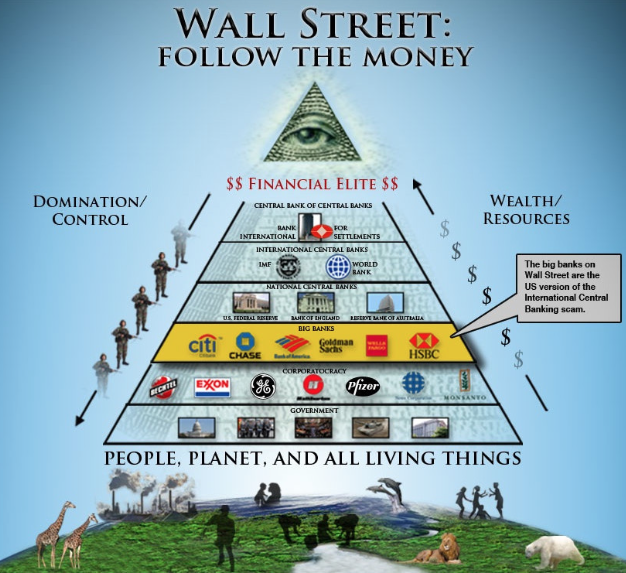
Chapter 15 is subtitled:
“The Beginning of Oppression, Nascent Culture War, Class War...Ten Millennia Ago...
“& Human’s Burgeoning Sycophancy”
READ/DWL BOOK drive.google.com/file/d/1-dlEBH… #psychology #greed #devolution #possession #anthro #evolution #ownership #anthropology
PH 14/96
“The Beginning of Oppression, Nascent Culture War, Class War...Ten Millennia Ago...
“& Human’s Burgeoning Sycophancy”
READ/DWL BOOK drive.google.com/file/d/1-dlEBH… #psychology #greed #devolution #possession #anthro #evolution #ownership #anthropology
PH 14/96
@threadreaderapp unroll
#psychology #greed #devolution #possession #anthro #evolution #ownership #anthropology #property #culture #domestication #patriarchy #ClassWar #accumulation #storage #wealth #control #stores #wealthy #agrarian #sedentary
#psychology #greed #devolution #possession #anthro #evolution #ownership #anthropology #property #culture #domestication #patriarchy #ClassWar #accumulation #storage #wealth #control #stores #wealthy #agrarian #sedentary
• • •
Missing some Tweet in this thread? You can try to
force a refresh












